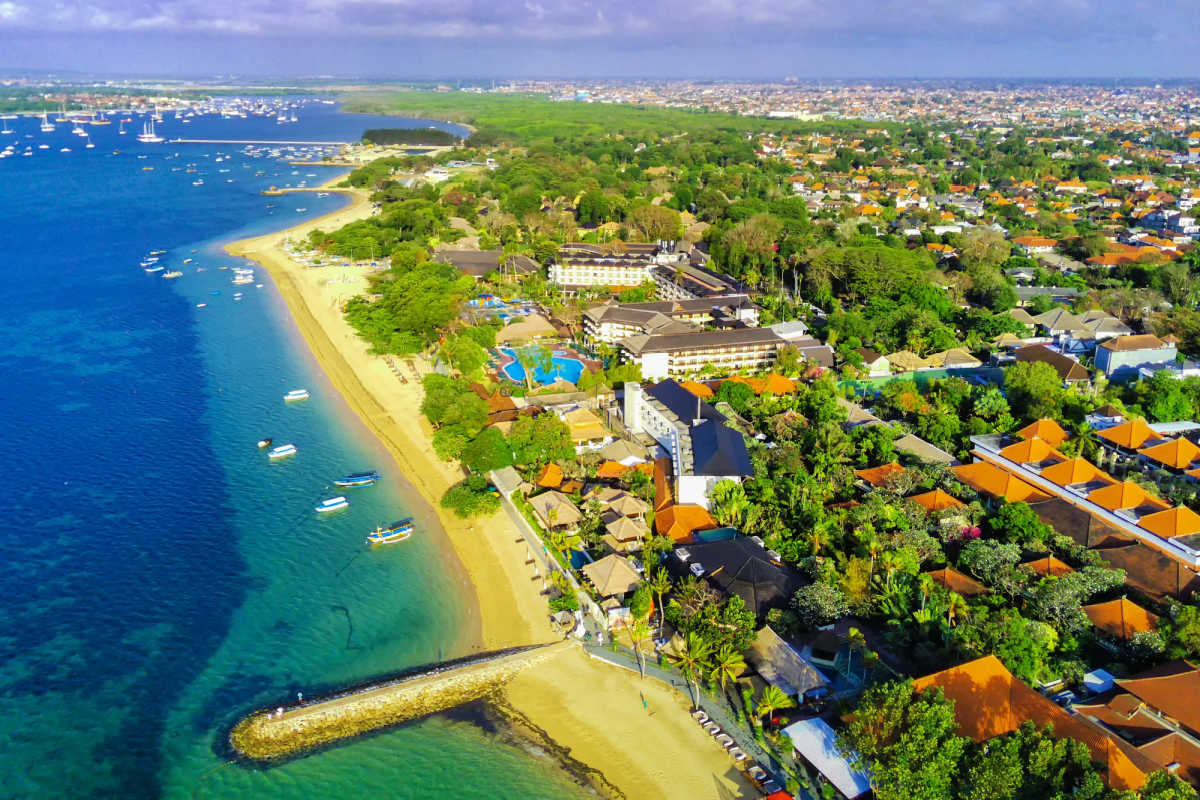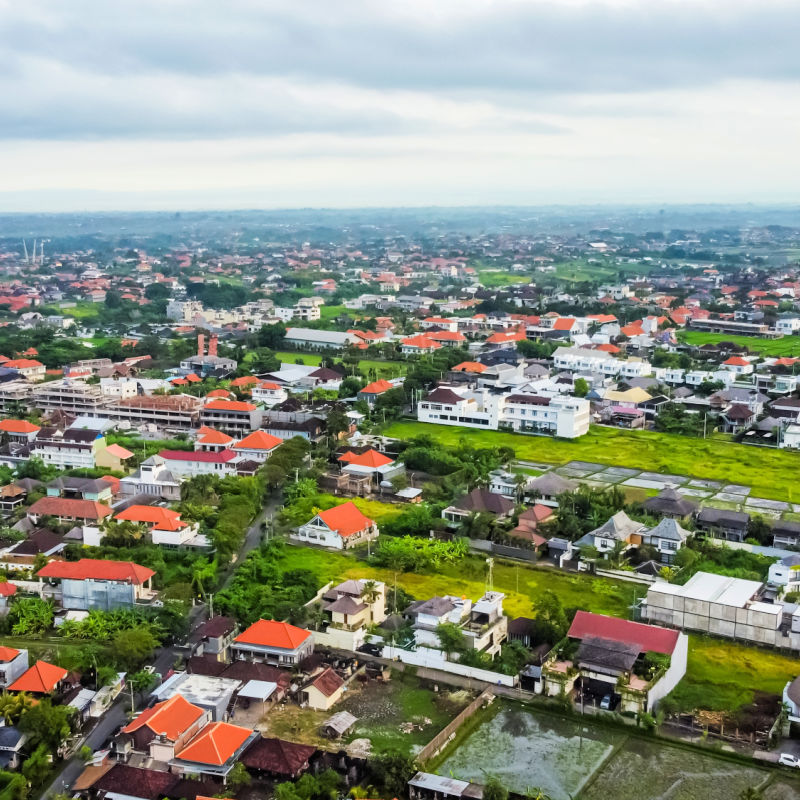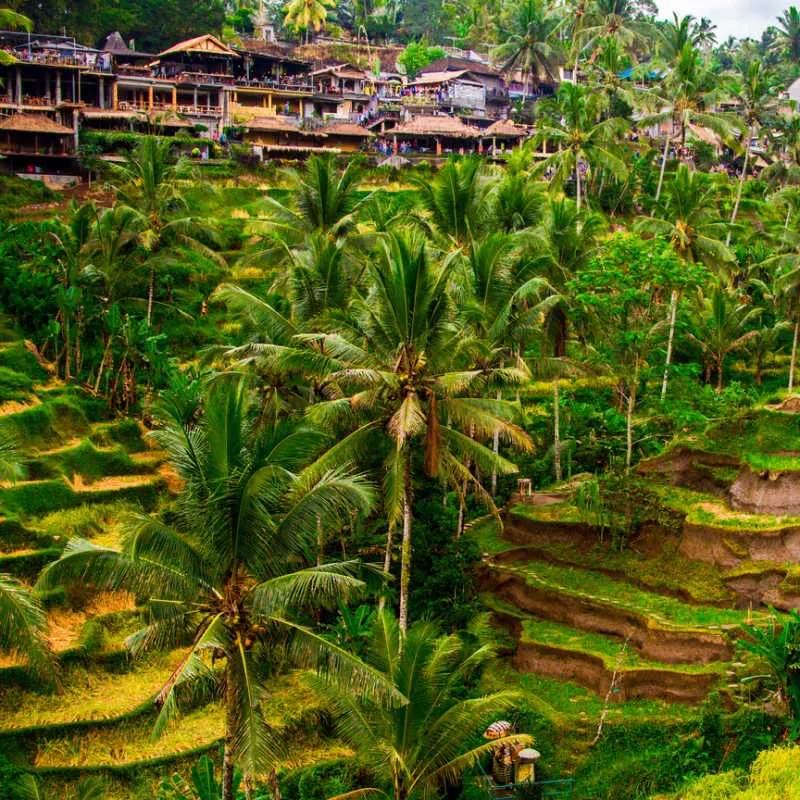Top ministers in Indonesia have confirmed that new legislation that will temporarily ban the construction of hotels, resorts, and tourism developments in Bali’s most popular resorts is entering the final drafting stages.

The Indonesian Minister for Investment and Maritime Affairs, Luhut Binsar Pandjaitan, spoke to the media on multiple occasions this week during his attendance at the Bali International Air Show.
Reporters pressed him for more details and a prospective date for the highly anticipated moratorium; he replied, “Be patient. Everything has its time, you will hear it later.”
In another public appearance, while holding a ceremony to plant mangrove seedlings blessed by Pope Francis in the Kura Kura Bali Special Economic Zone, Minister Pandjaitan communicated that the Bali Provincial Government’s request for a moratorium would be discussed in a limited cabinet meeting.
Minister Pandjaitan has been clear that he is opposed to the high volume of agricultural and community-owned land that is being converted into tourism developments, whether that be hotels, villas, residential complexes, beach clubs, and commercial properties, especially in the south of Bali.
Minister Pandjaitan has previously suggested that the moratorium will be introduced for two years, though it will have the potential to be extended to five or even ten years, should the policy be deemed effective once introduced.
The Regional Secretary for Bali, Dewa Made Indra, has confirmed that talks remain underway between the Bali Provincial Government and the Central Government. He says officials are working to create a ‘mature policy.’
Indra told reporters this week, “The policy is currently being drafted. Will it be included in a presidential instruction or something else? We are also participating in meetings with the Coordinating Ministry for Maritime Affairs and Investment. This meeting is being discussed,”
He added, “So, we will first inventory which rice fields are still left, what the condition of the rice fields is, and whether these are rice fields with good irrigation. It is necessary to have a break for these developments so that we can organize this.”
“After it is mapped properly, it has been determined which zones we can build and conserve, and then after that, development can continue.”
Many community groups and industry associations have been voicing their concerns about the rapid coercion of natural landscapes into commercial development to largely serve the tourism market in Bali.
The Bali-based environmental group Wahana Lingkungan Hidup Indonesia (WAHLI) gave its backing to the moratorium even before the policy details were announced.
According to their calculations, over 2,000 hectares of prime agricultural and community-owned land are covered by commercial developments in Bali every year.

Data gathered by WALHI shows that in 2018, Bali Province had 69,000 hectares of rice fields, compared to 80,000 hectares in 2014.
This 11,000-hectare loss does not account for the huge amounts of land that have been covered since 2019.
According to data shared by Made Krisna Dinata from WAHLI; Bali Province now has 62,000 hectares of working rice fields.

In the short and long term, many feel that the moratorium on tourism development in South Bali will have a positive impact on the environment, local communities, and tourists too.
One of the biggest attractions of Bali for tourists is the island’s natural landscapes, tropical vistas, and UNESCO world heritage-protected subak agricultural irrigation system.
The negative impacts of a decade of rampant tourism development have started to be apparent to Bali holidaymakers, who have all seen firsthand the issues of traffic congestion, waste management, and overcrowding at top destinations and attractions.

A ban on tourism development will positively impact tourists as there are more than enough hotel rooms, villas, and resorts to house the over 7 million annual international arrivals to the province.
A slowing down of development will give tourism businesses and the provincial government the opportunity to level up infrastructure, including public transport and waste management, to ensure that all the behind-the-scenes aspects of a vacation are running optimally.
The public dialogue as a whole is also giving prospective Bali holidaymakers the chance to explore alternative destinations for their vacation, offering more opportunities for businesses in the north, east, and west to thrive.
Remove All Ads & Unlock All Articles… Sign up for The Bali Sun Premium

Plan Your Bali Holiday:
Book The Best English Speaking Drivers For Airport Transfers & Tours
Choose From Thousands of Bali Hotels, Resorts, and Hostels with Free Cancellation On Most Properties
Book Cheap Flights To Bali
Don’t Forget Travel Insurance That Covers Medical Expenses In Bali
For the latest Bali News & Debate Join our Facebook Community
SUBSCRIBE TO NEW POSTS
Enter your email address to subscribe to The Bali Sun’s latest breaking news, straight to your inbox.

Exp
Monday 23rd of September 2024
Hurry up as local leaders are surely in progress updating zoning maps so as not be affected by the upcoming ban!
James
Saturday 21st of September 2024
Oh man I am so done with these kind of lines: "The negative impacts of a decade of rampant tourism development have started to be apparent to Bali holidaymakers, who have all seen firsthand the issues of traffic congestion, waste management, and overcrowding at top destinations and attractions."
FYI: Tourists and expats have seen the impacts of a decade of bad Balinese leadership.
Traffic congestion is a result of not obeying rules, therefore having trucks and busses blocking roads and scooters trying to wurm through: all adding to the chaos. If people would drive with respect for eachother and the rules, 90% of the traffic would run smoothly.
Waste management... Come on. This has hardly anything to do with tourism. Nusa Dua have their own system, for example. Tourists are not the ones dumping their trash in rivers or setting it on fire. There is a dumpsite burning next to sunset road for over a year. Nobody gives a ****, that's the problem. Managing the problem has been tried over and over around the island, however locals do not want to pay 10.000 a month for waste management, they rather dump the trash and buy cigarettes.
Overcrowding? Where? Ngurah Rai? Seminyak? Ubud? So you have to stand in line to visit a temple, and sometimes you can't book a table at a popular restaurant, but this is all normal (and healthy) in most countries where tourism thrives. What isn't normal however, is the truckloads of drivers ambushing people trying to scam them. Get them out of the way at the airport, Ubud, Sanur and Seminyak and watch the transformation happening, also free the shortcuts from cars and see what happens.
In short, it is not about: "The negative impacts of a decade of rampant tourism..." it is about bad management.
James
Tuesday 24th of September 2024
@Shorty, I completely agree, that's beside the point. I am talking about the whole tone of voice regarding who's the blame for the current situation: leadership, not tourists.
Shorty
Sunday 22nd of September 2024
@James,
There's around 76,000 beds in starred hotels. An estimated 36,000 rooms in unrated places. Add an estimated 1000+ villas officially for holiday rent.
Occupancy rate in starred places is around 65%+ till the end of July.
Apart from the environmental and social impact this suggests a moratorium is needed.
Exp
Sunday 22nd of September 2024
@James, True words.
Theo
Saturday 21st of September 2024
At last, common sense prevails! If the rapid building boom had been permitted to continue both tourists and foreign residents would have left. The natural beauty of Bali must be preserved,
Bali Keith
Saturday 21st of September 2024
Rice farmers are selling their rice paddies because they cannot make a living from it. How about government subsidies to help these farmers and encourage them to keep their land??